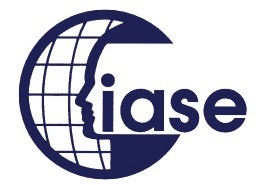Each Special Child is Unique
10th January 2018

Every child has the right to a good start in life. When every child matters, children with special needs should have the equal rights. “Children with special needs” are children who may have a varied range of development challenges. It is important to create a flexible ambience to meet the individual needs of these children.
To provide support & guidance to children with special needs, professional training is a must. Asian College of Teachers (ACT) has launched a wide spectrum of programs, imparting teacher training SEN for specialized training.
The variety of SEN courses offered by the ACT is as follows:
Childcare Education Course For Teachers
1. Introduction to Nannying
- Extra attention, knowledge, and patience is necessary to care for children with special needs.
- A nanny provides the extra support towards the well-being and development of a child with special needs.
- Nannies become part of the family, bonding with the children in a different way.
2. Babysitting
- Babysitters act as caregivers for children with special needs for specific supervision.
- An efficient babysitter needs proper training imparted through special needs teacher training to develop the methodologies and skills.
- A trained babysitter has the knowledge and a better understanding of their disorder and needs.
3. Child Development
- Providing a healthy environment for the child’s early stage of development is vital.
- As a trained child practitioner, it is important to make sure that children are healthy and safe.
- Caring and supportive environments promote optimal early childhood development.
4. Managing Behaviour
- The proper learning environment is maintained through proper learner behaviour.
- The necessary skills required to manage a classroom in the most effective way.
- Trained teachers ensure that students need to feel valued and welcomed.
5. Observing Children
- Observation is an effective method of assessing special children as they develop.
- Enables to give a better understand the strengths and weakness of each individual child.
- Observing is a key to building genuine, respectful relationships with students.
6. Understanding the revised Early Years Foundation Stage
- Plan around the needs of the special child.
- Support the child through planned, challenging, enjoyable and playful experiences and opportunities.
- Ensures giving importance to the individual needs, interests and stages of development of each child.
7. Communication and the Early Years Foundation Stage
- It is the importance of developing good communication skills in children with special needs.
- Build their confidence by listening and giving importance to them.
- Special children are guided to understand what is being considered for them.
8. Effectively Supervising the Early Years
- Ensure the optimal performance of the child in early years setting.
- The aspects and importance of mentoring, support, coaching and training
- As a trained teacher practice self-evaluation and reflect on your own practice.
9. Outdoor Play
- Engaging in outdoor activities given a prime focus for physical, emotional and social development.
- Aimed to develop confidence and expertise of the child with special needs.
- Acquaint children with the risks associated and methods to deal with them.
10. Caring for the Children in the home
- Mastering the skills and techniques to provide customized childcare for children in their home.
- Trained carers are able to communicate well with your child at their level.
- Interact with the parents’ is an important factor.
11. Child Psychology
- The underlying mental processes that result in varied manifestations.
- Become effective in guiding and nurturing your child as they grow and mature.
- Understanding the course of typical human development and perceiving potential issues.
Overview of other courses to follow.








